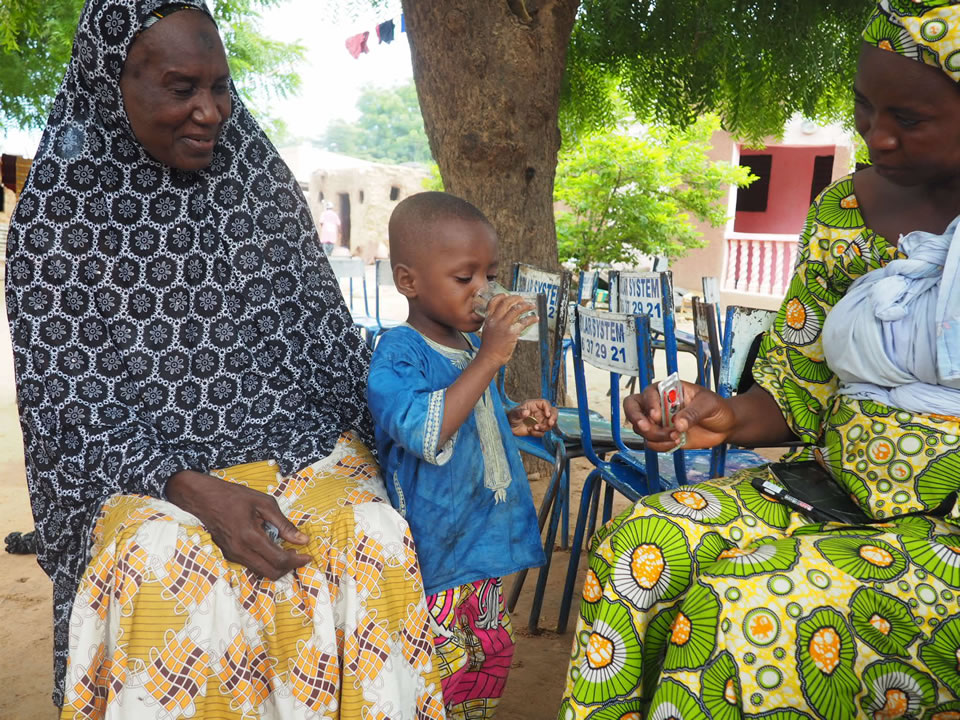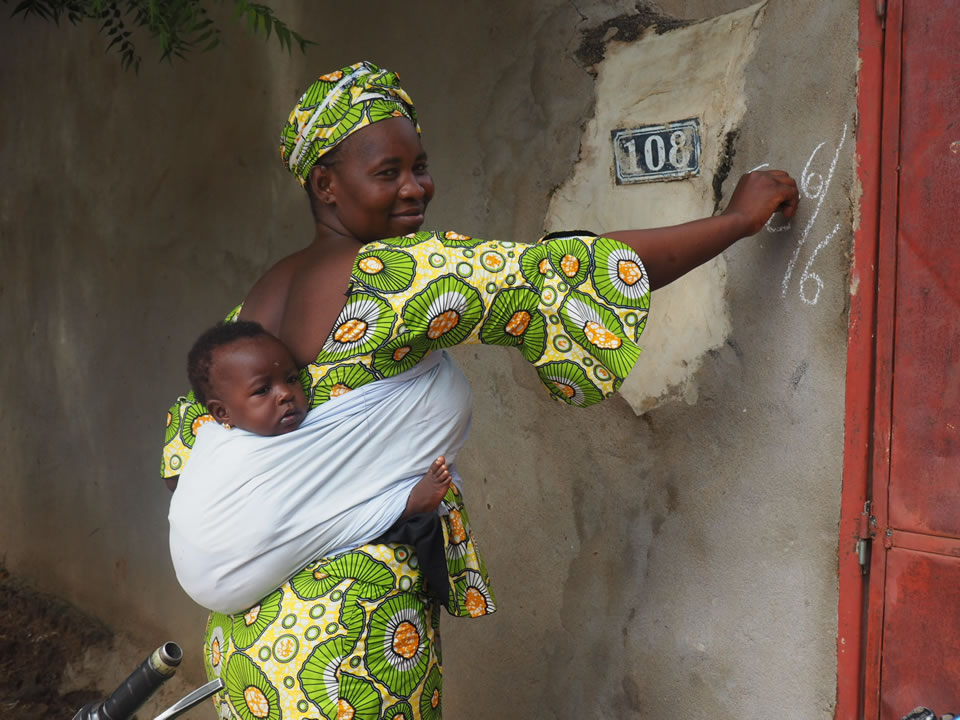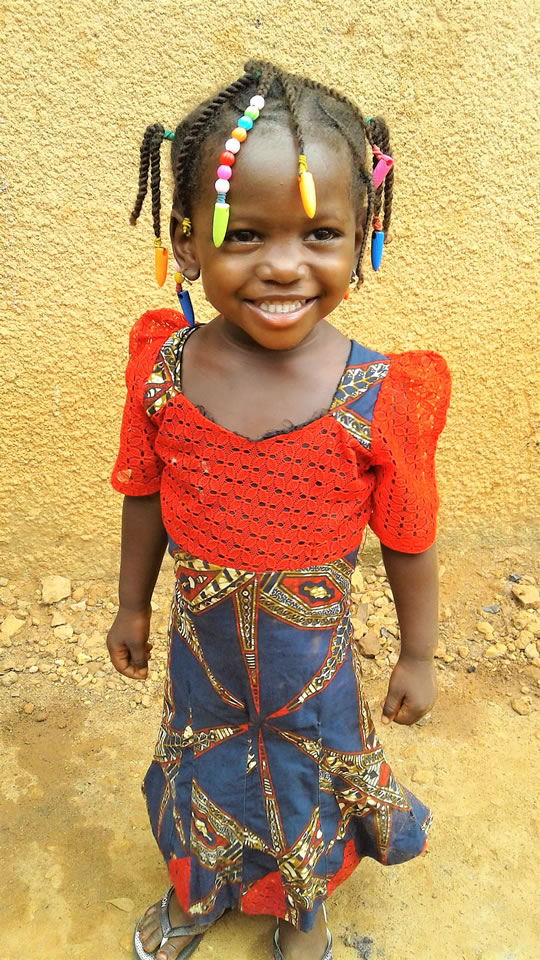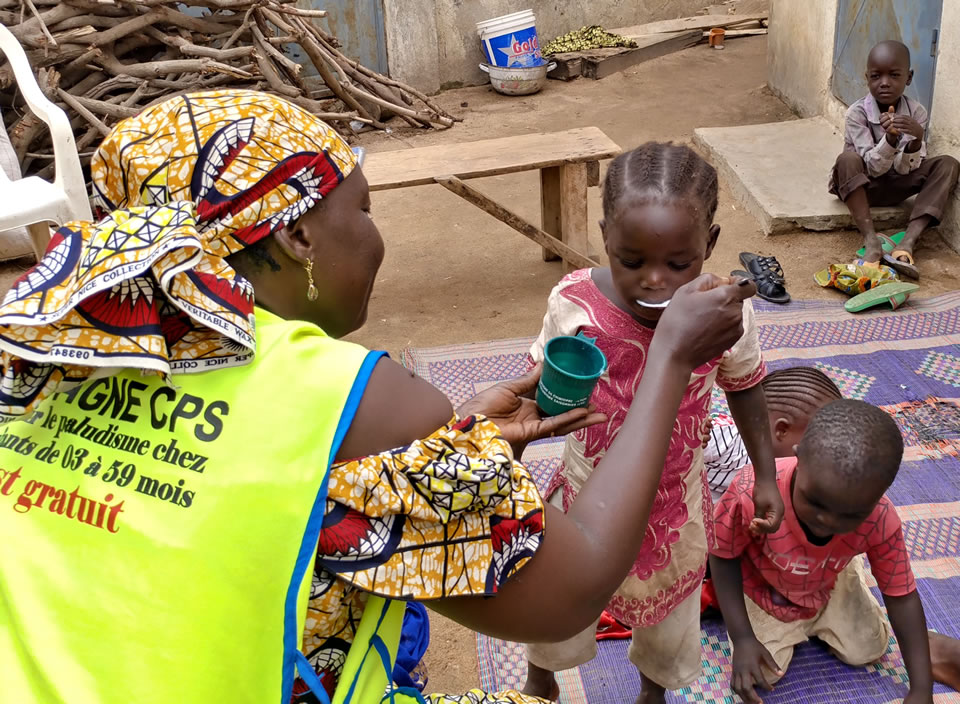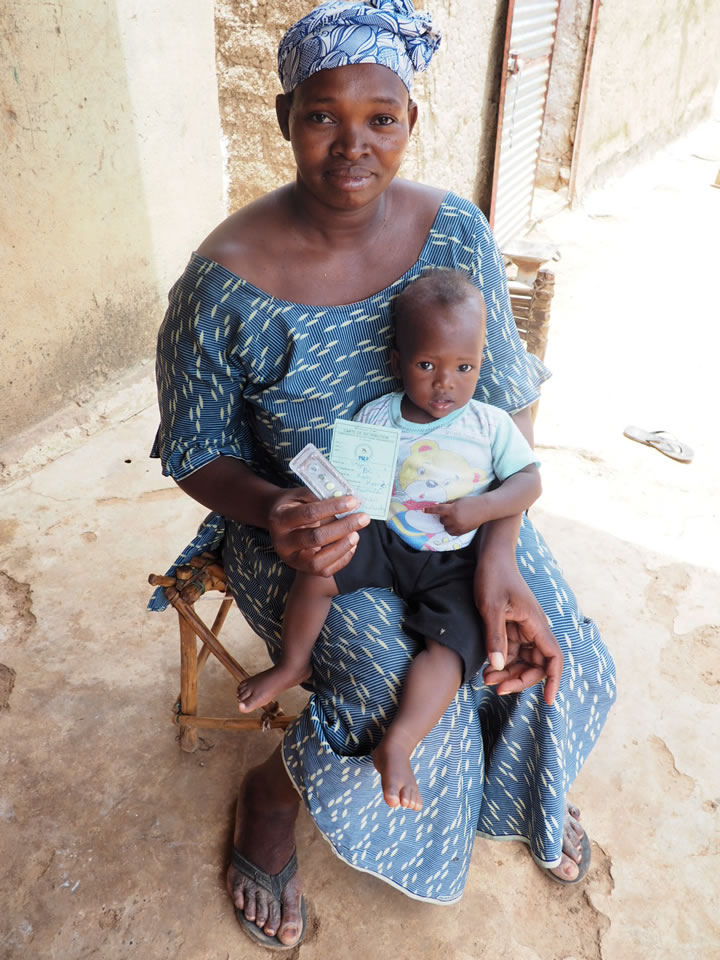Drocas Dako knows how to multitask. During Mali’s seasonal malaria chemoprevention (SMC) campaign, she’s out the door by 7 a.m. to distribute free pills that protect children from malaria. She goes from one household to the next, the whole time with her baby on her back.
At one of the first homes, Drocas is welcomed with friendly greetings and chatter as she and the household’s grandmother, Assitar, collect the young children and sit down together in the shade of a nearby tree.
Thinking back to the training she received from a nurse at the closest health clinic, Drocas gives the pills to a 4-year old boy, Alou, and speaks kindly as she reminds Assitar of the importance of checking off on Alou’s SMC card that the second and third doses were indeed given later at home.
That afternoon, Drocas emerges from visiting another household in the Segou region and makes a mark next to the home’s door with chalk to signal that she has visited the house and distributed medicine, as is the custom during SMC campaigns. Drocas managed to reach all six of the eligible children living there.
During the first campaign cycle in July, Drocas reminded Assitar and other caregivers that she would be back almost exactly one month later to administer another dose, and would return again in both September and October.
For young children in Mali and other countries across the Sahel region of Africa, Drocas’ work is lifesaving. SMC is a campaign-style intervention that involves giving an antimalarial medicine at monthly intervals for a maximum of four months during the rainy season when malaria transmission spikes.
SMC has been shown to dramatically reduce malaria cases and deaths in children under 5 years of age, which is the most vulnerable age group affected by malaria. In 2017, they accounted for about 60 percent of all malaria deaths worldwide.
That same year, according to the World Health Organization (WHO), an estimated 15.7 million children were protected through SMC campaigns, but 13.6 million children who could have benefited from SMC were not reached. Insufficient funding is one of the most common reasons that countries cite to explain this coverage gap.
Through the generosity of the American people, the U.S. President’s Malaria Initiative (PMI) has supported nine countries this year in their efforts to prevent childhood malaria through SMC from July to October. With PMI support, it is expected that about 5 million children will be reached this season.
Here is a snapshot of three children who are benefiting right now from PMI-supported SMC:
Farida, age 3, lives with her parents and two siblings in Niger. Thanks to PMI’s support of Niger’s SMC campaign, Farida has had the chance to take free pills every month until the rainy season is over. Farida was one of 534,389 children in Niger’s Dosso Region who received medicine to protect her from malaria during August’s SMC cycle. Her mother said, “I want her to receive this prevention because I know malaria can kill her.”
Karotumay holds her son, Bedy, age 2, and the card that shows he just received an antimalarial through Mali’s SMC campaign. As a mother of six, she knows the importance of protecting children from malaria. “When children get malaria, they vomit and have such a bad fever that they can convulse and die. It’s very serious” says Karotumay. “In the past, Bedy’s older sister and brothers received SMC to prevent malaria. I know it works.”
Malaria prevention and control remains an important U.S. foreign assistance objective. Supporting SMC is one hugely impactful way that PMI is working with countries to fight malaria and save children’s lives.

